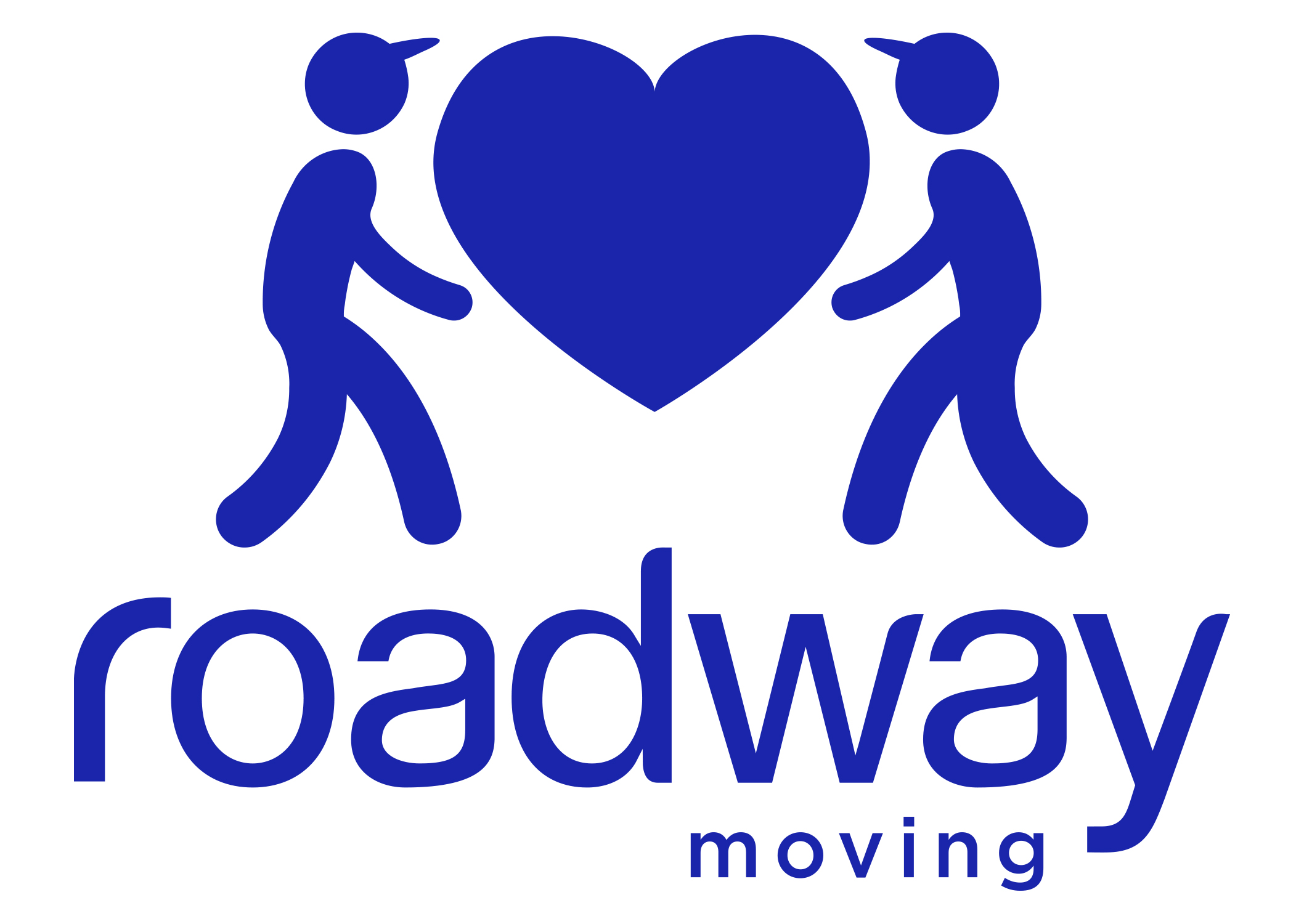Highly rated local moving companies for Charleston to Hartford moves
Organizing a move from Charleston to Hartford can be daunting, particularly when trying to identify a reliable mover that offers long-distance services. We’ve done the groundwork for you, evaluating 10 local movers in Charleston known for their long-distance moving capabilities, assessing them on pricing, customer experiences, and reliability.
Here are the best local movers for long-distance moves from Charleston to Hartford.
- Smooth Move Charleston: 4.62 out of 5 stars
- All My Sons Moving & Storage: 4.52 out of 5 stars
- Low Country Moving, LLC: 4.36 out of 5 stars
- Reads Moving Systems of Carolina, Inc.: 4.36 out of 5 stars
- Cougar Moving: 4.14 out of 5 stars
Company Info
State license #: 9823
Years in Business: 12
DOT #: 2357653
Alternate Names: Go Smooth Move, LLC
Services Offered
- Local moves
- Interstate moves
- Packing
- Unpacking
- Offices
- Pianos
- Pool Tables
- Storage
- Pay by credit card
Company Info
State license #: 9792-B
Years in Business: 26
DOT #: 902281
Services Offered
- Local moves
- Interstate moves
- International moves
- Packing
- Unpacking
- Offices
- Pianos
- Antiques
- Crating
- Storage
- Safes
- Pay by credit card
- Deposit Required
Company Info
Pricing: $150/hr
Years in Business: 13
DOT #: 2362770
Services Offered
- Local moves
- Interstate moves
- Offices
- Pianos
- Art
- Antiques
- Crating
Company Info
State license #: 149-D
Years in Business: 47
DOT #: 2021301
Services Offered
- Local moves
- Interstate moves
- International moves
- Packing
- Unpacking
- Offices
- Pianos
- Art
- Antiques
- Crating
- Shipment tracking
- Full-valuation coverage
- Storage
- Pay by credit card
- DOD certified
Company Info
Pricing: $124/hr
Years in Business: 14
DOT #: 2868021
Services Offered
- Local moves
- Pay by cash
- Pay by credit card
How much does it cost to move from Charleston to Hartford?
On average, moving companies in South Carolina charge about $137 per hour. Consider these typical rates for a full-service moving company, moving container, or rental truck:
| Move size | Moving company | Moving container | Rental truck |
|---|---|---|---|
| Studio / 1 bedroom | $1,100 – $3,695 | $711 – $1,892 | $554 – $1,067 |
| 2 – 3 bedrooms | $2,027 – $5,012 | $1,373 – $2,711 | $581 – $1,306 |
| 4+ bedrooms | $3,416 – $6,744 | $1,718 – $3,372 | $795 – $1,479 |
Cost to hire movers from Charleston to Hartford
When planning a move to Hartford from Charleston, for a studio or one-bedroom, you’ll likely pay between $1,100 and $3,695. If you have a two- or three-bedroom home, expect costs to fall somewhere between $2,027 and $5,012 for the same journey. Moving four or five bedrooms? Typical prices range from $3,416 to $6,744.
Cost of moving containers from Charleston to Hartford
When you’re heading from Charleston to Hartford, and you’re only moving a few items, you can expect to spend between $711 and $1,892. For a two- or three-bedroom place, prices usually fall between $1,373 and $2,711. If you’re packing up a large home with four or more bedrooms, the cost can range from $1,718 to $3,372. Want more details? Check out our complete PODS cost guide.
Explore the top budget-friendly moving container companies to make your move from South Carolina easier and more affordable.
Cost of moving truck rentals from Charleston to Hartford
A moving rental truck from Charleston to Hartford is generally the cheapest option, but it requires you to do all of the driving and labor.
Moving a studio or one-bedroom apartment in a rental truck will cost around $554 to $1,067. A two to three-bedroom move will cost $581 to $1,306, and moving a home with four or more bedrooms from Charleston to Hartford costs around $795 to $1,479.
These quotes include the estimated fuel cost.
Factors that affect moving costs from Charleston to Hartford
The cost of Charleston movers will depend on:
- How much stuff you have: A one-bedroom move from Charleston to Hartford may only cost $1,861, whereas a full four-bedroom relocation can approach $5,736.
- The season you’re moving in: Movers charge more in summer, the busiest months in Charleston.
- Which type of mover you use: Save with a truck rental ($554–$1,314), but expect more hassle than hiring pros.
What to know before moving from Charleston to Hartford
Many movers find Hartford easier on the wallet than Charleston – roughly 61% less for singles and 34% less for families.
Monthly basics average $2,085 for one person in Hartford versus $5,300 in Charleston. For a family of four, it’s $5,185 compared with $7,890.
See the cost breakdown below to pinpoint where the savings add up:
| Charleston | Hartford | |
|---|---|---|
| Average 1 BR rent | $2,529 | $2,039 |
| Average 3 BR rent | $4,487 | $3,350 |
| Average home value | $559,231 | $164,597 |
| Average income (per capita) | $62,294 | $71,103 |
| Cost of living (single) | $5,300 | $2,085 |
| Cost of living (family of four) | $7,890 | $5,185 |
| Unemployment rate | 4.0% | 14.0% |
| Sales tax | 9.0% | 6.35% |
| State income tax | 7.0% | 3.0% |
- Rent is about 47% less expensive in Hartford than in Charleston, so you will have more cash on hand each month.
- Expect your mortgage payments to be easier on the wallet, as home prices are around 71% cheaper in Hartford than in Charleston.
- Here’s some fantastic news, the average income is approximately 14% greater in Hartford than in Charleston, offering more potential for savings or investments each month.
- Expect to spend less on everyday needs such as food, fuel, and utilities in Hartford. The cost of living for a single person there is 61% below that of Charleston.
- A move to Hartford can offer your family a more affordable lifestyle, with savings on everyday costs such as utilities, groceries, and transport. The cost of living for a family is 34% lower compared to Charleston.
- Hartford has a higher unemployment rate than Charleston by about 250%. This means that more people are out of work, so employers may have a larger pool of candidates to choose from, which can lead to a more competitive hiring process.
- Sales taxes are 29% cheaper in Hartford compared to Charleston. This could significantly slash costs for families or individuals with higher spending on taxable necessities.
- Income taxes are 57% less in Connecticut compared to South Carolina, offering a relief on your paycheck, which can enhance your budgeting options.
Here’s the side-by-side view of common monthly bills and day-to-day expenses in Charleston versus Hartford:
| Living Expense | Charleston | Hartford |
|---|---|---|
| Basic utilities | $156.99 | $118.73 |
| Cell phone plan | $54.78 | $41.88 |
| Dozen eggs | $4.55 | $4.75 |
| Loaf of bread | $3.82 | $3.97 |
| Fast-food/casual eatery (one meal) | $18.00 | $20.00 |
| Dinner for 2 (mid-range restaurant) | $80.00 | $95.00 |
| Gym membership | $29.17 | $49.67 |
- Basic utilities tend to be more expensive in Charleston than in Hartford.
- Cell phone plans typically cost more in Charleston than in Hartford.
- Eggs are less expensive in Charleston than in Hartford.
- Bread costs less in Charleston than in Hartford.
- A quick meal is cheaper in Charleston than in Hartford.
- A mid-range dinner for two costs less in Charleston than in Hartford.
- Gym memberships are more affordable in Charleston than in Hartford.
How life is different in Charleston vs. Hartford
| Charleston | Hartford | |
|---|---|---|
| Population | 150,277 | 121,054 |
| Transportation score | 3 | 8 |
| Walkability score | 40 | 67 |
| Bike friendliness score | 50 | 54 |
| Crime index | 44.97 | 63.75 |
| Safety index | 55.03 | 36.25 |
| Air quality | Good | Moderate |
- Hartford’s population is about 19% less than Charleston.
- Hartford’s public transportation score of 8 out of 10 is higher than Charleston’s score of 3.
- Hartford is more walkable than Charleston with a score of 67 out of 100 vs Charleston’s 40 out of 100.
- With a score of 54 out of 100, Hartford is more bike-friendly than Charleston, which has a score of 50 out of 100. The higher a city’s score, the more suited it is to safely accommodating cyclists.
- Hartford’s crime rate is higher than Charleston with a score of 63.75 compared to Charleston’s 44.97. This means that Hartford neighborhoods are safer than 63.75% of all U.S. neighborhoods, and Charleston neighborhoods are safer than 44.97%.
- Hartford is considered to be less safe than Charleston with a score of 36.25 vs Charleston’s 55.03.
- Air quality in Hartford is Moderate, and in Charleston it’s Good.
Other things to consider for your Charleston to Hartford move
- HOA rules: Costs across Charleston and Hartford are largely aligned, so your monthly budget shouldn’t shift much after the move.
- Elevator reservation: If your building has an elevator you’ll want to check on how to reserve it for move day.
- Truck parking permits: Many cities require special permits for parking large moving trucks. Check in advance to see if one is needed for your move.
- State licensing: The Connecticut Department of Transportation (CDOT) regulates in-state moving companies and taxi, trucking, and bus companies. In addition, customers are also protected from scam movers by regulations set forth by the Connecticut State Department of Consumer Protection. Ensure the company you choose is licensed to handle your move.
- State regulator: To confirm a moving company’s license in Connecticut, visit the state’s public utilities commission.
- Moving Permits: Moving permits aren’t typically required in Connecticut, but always confirm with local authorities to avoid surprises.
- Change of address: You can set an official move date on the form and this way all of your mail will get properly forwarded to Hartford. Get started here.
- Moving company insurance: Each state has its own requirements for the level of insurance moving companies must carry. Opting for Released Value Protection is a budget-friendly choice, as it comes at no extra cost from movers, although it provides minimal coverage. Under this option, the mover’s liability is limited to a maximum of 60 cents per pound per article. If your belongings are valuable and you seek coverage beyond this limited protection, it’s recommended to discuss alternative options with your chosen moving company or explore third-party insurance providers.
- Moving checklist: Let our moving checklist guide you through the process and help ensure nothing slips through the cracks.
Where to live in Hartford
With your sights set on New England’s Rising Star, these are some of the most popular neighborhoods to consider in Hartford.
Best neighborhoods for singles
- Downtown
- Asylum Hill
- Rocky Hill
- Manchester
- Sheldon-Charter Oak
- Cromwell
- East Windsor
Best neighborhoods for families
- Weatogue
- Avon
- Simsbury
- Glastonbury
- Farmington
- Glastonbury Center
- West Simsbury
Things to do in Hartford
With your move to Connecticut complete, you can dive right into experiencing Hartford. From cultural attractions to outdoor adventures, you’ll never run out of things to do:
- Arts and culture: Hartford is home to museums and cultural arts centers like the The Mark Twain House & Museum, Wadsworth Atheneum Museum of Art, Museum Of Connecticut History, and Hartford Armory.
- Outdoor recreation: The city’s Goodwin Park, Bushnell Park, and Riverside Park — among other spots — perfect for hiking, biking, or simply soaking up the outdoors.
- Sports: Experience the energy of a live game and back the home team at an Hartford Athletic (Soccer-USL Championship)Hartford Wolf Pack (Hockey-AHL)Hartford Yard Goats (Baseball-Eastern League) game.
FAQ
When is the best time to move from Charleston to Hartford?
If you’re flexible with timing, spring and fall are great seasons to move from Charleston to Hartford. You’ll dodge the heat, the crowds, and the higher moving costs typical of peak season in Charleston.
When is the cheapest time to move from Charleston to Hartford?
Want to save on your move from Charleston to Hartford? Consider scheduling it in winter, when demand is lower and rates are often cheaper. Our moving discounts guide shows you how.
How long does a move from Charleston to Hartford take?
The 870-mile move from Charleston, SC, to Hartford, , takes two to seven days. Some Charleston movers may offer expedited moving if you need it faster. If you need more time, ask your mover about storage options in Hartford.
Need help moving a piano or antiques in Charleston?
These delicate items require movers with specialized training. Currently, 6 movers in Charleston provide piano moving services. 4 can transport antiques with care. Statewide, there are 33 piano movers and 18 antique movers, with nationwide counts at 2,299 and 1,464.
Demand for these services can be high, so schedule your specialty move as far ahead as possible.
Helpful moving resources
Charleston moving services
Popular South Carolina routes
- South Carolina to Connecticut car shippers
- South Carolina to California movers
- South Carolina to Florida movers
- South Carolina to Georgia movers
- South Carolina to Illinois movers
- South Carolina to Michigan movers
- South Carolina to New York movers
- South Carolina to North Carolina movers
- South Carolina to Ohio movers
- South Carolina to Pennsylvania movers
- South Carolina to Texas movers
- See All Moving Routes
Not what you were looking for?
Check out other categories that can help you find the information you need!

























